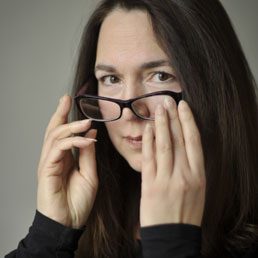
- Posted: 9 diciembre, 2015
- By: Instituto Internacional
- Comments: No Comments
ENGLISH READING CIRCLE – SHORT STORY OF THE MONTH ANALYSIS: “HOW TO BECOME A WRITER” BY LORRIE MOORE
This month’s story, Lorrie Moore’s “How to Become a Writer,” has as its ancillary title “Or, Have You Earned This Cliché?” Unpacking the title seems like a good way to start examining this wry, ironic, yet surprisingly tender little story. While it might pose as a how-to manual of sorts, written in the second person and so directly addressed to the reader, the reality is that Moore’s advice for burgeoning writers is all about earning the right to have your most intimate creations criticized, often brutally, by people who don’t understand your obsessive need to create them in the first place.
“How to” follows the development of Francie, a young writer struggling to define herself, both as an artist as well as a functional human being. The story’s fractured, idiosyncratic style offers us snippets of Francie’s life, always through the lens of her governing ambition. Her biography becomes fodder for fiction; her fiction continues to be judged harshly, to crash against the blank faces that Francie struggles against throughout her life.
Francie also struggles against literary convention, and perhaps her desire to test the bounds of what writing can be is doomed to be met with incomprehension. The recurring critique of her work is the poor quality of her plots; indeed, given the descriptions Moore presents us with of Francie’s stories, it seems as if they operate outside the bounds of causality and natural law. This “plotlessness” is reflected by the story itself, and is arguably its most salient thematic feature. The randomness of Francie’s life, her own experience with the unexplainable and the tragic (chiefly represented by her brother’s war wound), all forge the writer she is trying to become. As the story finishes, that writer has emerged, though perhaps at the expense of the balanced, happy person Francie might have been.
What should we make of the use of the second person here? There is no real instruction taking place, since the narrator is simply dictating events that will (or have already) occurred in Francie’s life. There is no freedom of choice for her; likewise there is no simple trick to becoming a writer. It is a destiny as well as a doom, and it can only be achieved through suffering and resolve. Perhaps Moore’s chief recommendation, given the story’s style, is to be sure not to lose your sense of humor along the way.
Happy reading,
Andrew Bennett
More details about the session at: https://www.iie.es/agenda



